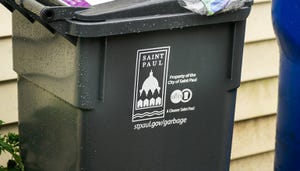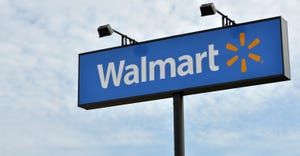Big Apple Recycling
And the winner of the recycling survivor contest is: metals. In this case, survival didn't mean being a winner on a cheesy reality television show. Survival meant being selected as a material that still will be collected at curbside in New York City.
This survivor contest began in March when Mayor Michael Bloomberg proposed eliminating curbside bottle and can collection. The subsequent brouhaha ignited a storm of controversy as recycling opponents and advocates battled over its importance.
Initial press reports inaccurately claimed that the mayor wanted to end municipal recycling in the Big Apple. He didn't. He only proposed suspending bottle and can curbside collection for 18 months while city staff studied how to cut costs. Mixed paper always was a survivor because collecting newspaper, corrugated boxes, magazines, catalogs and phone books made money. Recycling mixed paper also has a big impact on the waste stream because it accounts for more than half of curbside materials. However, recycling bottles and cans costs city taxpayers $52 million per year.
The city of New York also benefits from a nickel deposit on beer and soft drink containers that diverts a considerable amount to recycling. Mayor Bloomberg wanted to convert the deposit into a tax that could fund city services. Reactions to the proposal were predictable. Environmentalists were aghast that recycling's sacred cow was being gored. They also were concerned that a decision to drop recycling in Gotham would justify cutbacks in other cities facing budgetary problems.
Anti-recyclers declared recycling dead, ignoring paper recycling's success. Advocates for education, health, police, fire protection and other public services being cut wondered why recycling was getting so much attention, yet they were being ignored.
Fortunately, some recycling advocates had concrete suggestions about how to save money on solid waste and recycling programs while continuing bottle and can collection. The proposals didn't completely bridge the budget shortfall but were thoughtful alternatives.
The tax went nowhere. Instead, the deposit may be expanded to include other beverages, although the legislature lacks the courage to include milk containers. If the city is lucky, the state will reclaim the unredeemed deposits and give some of the money to fund recycling.
The mayor and the city council came to an odd compromise. Glass and plastic won't be collected but metal — cans, wire hangers and foil — will. Why metals? The two sides needed a face-saving compromise and someone probably said that metal markets exist. I doubt anyone spent more than two seconds figuring out how to collect metals. They were only looking to cut a deal and finish the budget. Now, it appears the city may use separate trucks for metals and mixed paper, which is ludicrous.
What can recyclers learn from this latest “threat?” Recycling will (and should) compete with other municipal programs for tax money. Think lean and mean, and constantly look for ways to cut costs because the best strategy is a low-cost program.
The columnist is director, state programs for the Environmental Industry Associations, Washington, D.C.
Opinions in this column do not necessarily reflect the National Solid Wastes Management Association or the Environmental Industry Associations. E-mail the author at: [email protected]
About the Author(s)
You May Also Like




